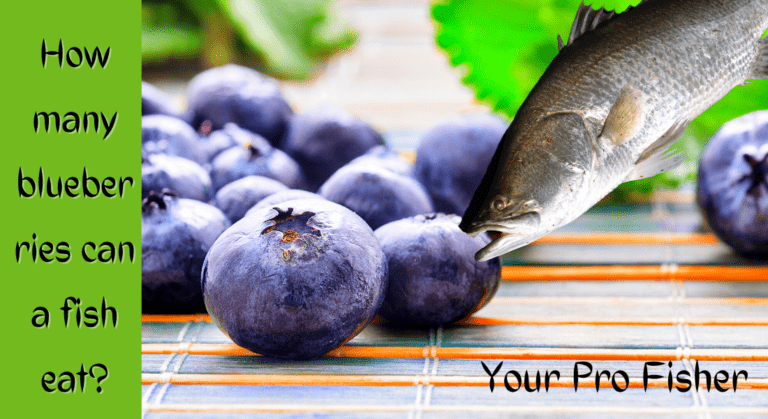Why Is My Goldfish Turning Black? Possible Causes & Treatment
It’s a common sight to see goldfish swimming around in the tank, their vibrant scales gleaming in the light. Are you worried about the sudden change in color of your beloved goldfish? Is it turning black and you have no idea why? Well, don’t worry, you are not alone! Let’s explore this topic.
Goldfish turning black can be caused by a wide range of factors, such as inadequate water quality, poor diet, stress, or more complicated medical conditions. It is important to identify the underlying cause in order to provide your fish with proper treatment and care.
Poor water quality is often the main cause of goldfish turning black; an ideal aquarium should have a pH of 7.0-7.5, with regular water changes to keep nitrate levels below 20 ppm.
In this article, I’ll discuss the different causes of goldfish turning black, how to diagnose and treat them, as well as how to prevent it from happening in the future.
Is It Normal for Goldfish to Turn Black?

No, it is not normal for goldfish to turn black. If your goldfish is changing color and losing its bright hues, it may be indicative of a more serious underlying issue. In most cases, the cause of the discoloration can be traced back to water quality issues or diet problems.
It’s important to identify and rectify the issue quickly, as goldfish that are not in optimal health are more prone to diseases and could die prematurely without proper care.
In addition, some other medical conditions can cause your goldfish to turn black. These include fungus or bacterial infections, parasites, poxvirus disease, or even inherited genetic mutations.
In order to determine the cause of your goldfish’s discoloration, it is important to examine them closely and look for any physical symptoms that are present.
Interesting solutions for you read: Why Is My Goldfish Turning White?
What Are the Symptoms of Black Goldfish?
When diagnosing the cause of a black goldfish, it is important to pay attention to both physical and behavioral symptoms.
Generally speaking, if your fish are displaying any of the following signs, they may be suffering from a medical condition or environmental stress:
1. Physical Symptoms
- Dark patches or blotches on the body or fins
- White spots or patches on the body
- Loss of vibrant colors and a duller complexion
- Abnormal growths or bumps on the skin
- Cloudy eyes
2. Behavioral Symptoms:
- Lethargic behavior and/or lack of appetite
- Trouble swimming or staying afloat
- Clamped fins or shimmying
- Irritability and aggression toward other fish
It’s important to note that many of these symptoms can also be caused by poor water quality and inadequate diet, so it is important to rule out these issues first before looking for a more serious underlying cause.
If your fish appears to have one or more of the symptoms listed above, it is important to seek veterinary help and provide them with proper medical attention.
Interesting solutions for you read: Why Is My Goldfish Turning Red?
What is Causing My Goldfish to Turn Black?

Goldfish turning black can be caused by a wide range of factors, from inadequate water quality and poor diet to more serious medical conditions.
It is important to identify the underlying cause in order to provide your fish with proper treatment and care.
1. Poor Water Quality
One of the most common causes of goldfish turning black is poor water quality. An ideal aquarium should have a pH of 7.0-7.5, with regular water changes to keep nitrate levels below 20 ppm.
If your tank is not properly maintained and kept clean, the water can become quickly contaminated with harmful toxins such as ammonia or nitrites which can cause discoloration in your fish.
It is also important to ensure that the temperature of your tank is kept between 68-72 degrees Fahrenheit as sudden changes in temperature can cause stress in fish and even lead to death.
Interesting solutions for you to read: Best Water for Goldfish
2. Poor Diet
Another common cause of goldfish turning black is an inadequate diet. Goldfish should be fed a balanced diet consisting of high-quality flakes, pellets, and live or frozen foods.
It is important to only feed as much food as your fish can consume in a few minutes, as overfeeding can lead to water contamination which can cause discoloration in your fish.
3. Medical Conditions
In some cases, goldfish turning black may be caused by more serious medical conditions. These include fungus or bacterial infections, parasites, poxvirus disease, or even inherited genetic mutations.
If your fish displays any of the following signs such as dark patches or blotches on the body and fins, white spots or patches on the body, cloudy eyes, lethargic behavior and/or lack of appetite, or trouble swimming or staying afloat, it is important to seek veterinary help and provide them with proper medical attention.
Is Black Goldfish Contagious?
The good news is that black goldfish are generally not contagious, as the discoloration is usually caused by environmental stress or medical conditions.
However, it is important to quarantine any new fish so that they do not spread infectious diseases or parasites to your other fish.
It is also important to regularly check water parameters, perform regular water changes, and ensure that your fish are receiving a balanced diet in order to minimize the risk of further issues.
Interesting solutions for you to read: How To Enhance Goldfish Color?
Will My Goldfish Die if It Turns Black?

The answer to this question depends on the underlying cause of your goldfish turning black.
If it is due to poor water conditions or an inadequate diet, then it may be possible to reverse the discoloration by providing your fish with proper care and treatment.
However, if your goldfish has a more serious medical condition such as a bacterial infection or parasite, then it is important to seek veterinary help and provide them with proper medical attention. In some cases, the condition may be too severe and your fish may not survive.
It is also important to regularly check water parameters, perform regular water changes, and ensure that your fish are receiving a balanced diet in order to minimize the risk of further issues.
By understanding the different causes of goldfish turning black and how to properly care for your fish, you can help ensure that your goldfish lives a long and healthy life.
Interesting solutions for you to read: Can Goldfish Lose Their Color?
Is There Anything I Can Do to Prevent My Goldfish From Turning Black?
Goldfish are popular aquarium fish and make a wonderful addition to any home, but occasionally they can suffer from discoloration in their scales.
Discoloration of goldfish turning black is usually caused by environmental stress or medical conditions, which can be prevented with proper care and treatment. In this part, I’ll explore how to prevent your goldfish from turning black.
1. Water Quality
One of the most important things to keep in mind when it comes to preventing your goldfish from turning black is water quality.
Goldfish are very sensitive and can suffer health issues if their tank environment isn’t properly maintained.
A good rule of thumb is to test your water parameters on a regular basis and perform weekly water changes. This will help ensure that the water remains clean and free of any harmful toxins.
2. Proper Diet
A proper diet is also essential for preventing discoloration in goldfish. Goldfish should be fed a balanced diet that includes flakes, pellets, or live food.
Avoid overfeeding as this can lead to overeating and a build-up of toxins in the water, which can cause discoloration in goldfish.
3. Quarantine New Fish
When introducing new fish into your tank, it is important to quarantine them for several weeks before adding them to your main tank.
This will help ensure that any diseases or parasites are not spread to your other fish.
Interesting solutions for you read: How Many Goldfish Can You Keep in a 10-gallon Tank?
4. Temperature
Another important factor in preventing goldfish from turning black is maintaining the temperature of the tank.
Goldfish thrive best in temperatures between 64°F and 72°F (18°C-22°C). Any drastic changes in temperature can put stress on your fish and cause discoloration.
Conclusion
- Goldfish can turn black due to a variety of factors, including genetics, environment, diet, and health issues.
- Genetics is the most common cause of black coloration in goldfish and is often inherited from their parents.
- Environment plays an important role in the color of a goldfish as well, with too little or too much light resulting in black coloration.
- An incorrect diet can also cause goldfish to turn black; goldfish need a balanced diet including minerals and vitamins to maintain their health.
- Poor water quality, as well as certain health issues such as ammonia poisoning, can also result in a goldfish turning black.
Reference: ResearchGate ScienceDirect

